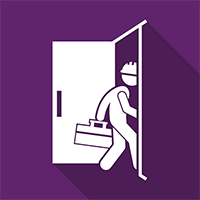Our Partners
We are proud to support and work with a wide range of employers across the UK.

Business & Management
Business Administrator
Business Administrators possess a number of highly transferable set of skills, knowledge and behaviours that can be applied to a number of sectors.
Customer Services Specialist
A Customer Service Specialists main role is to provide professional customer support within all sectors and organisations.
Operations / Departmental Manager
An Operations/Departmental Manager is someone who manages teams and/or projects, and achieving operational or departmental goals and objectives.
Customer Service Practitioner
The role of a customer service practitioner is to deliver high quality products and services to the customers of their organisation.
Team Leader / Supervisor
A team leader / supervisor is a first line management role, with operational/project responsibilities or responsibility for managing a team to deliver a clearly defined outcome.
Procurement and Supply Assistant
This occupation is found in all organisations where goods and/or services need to be sourced and purchased in line with national or international procurement laws, or internal governance processes.
Improvement Leader
Improvement Leaders are responsible for developing improvement strategy, providing leadership in improvement for the business and for coaching and supporting Improvement Specialists in advanced analysis.

Education, Children & Young People
Early Years Educator
Early Years Educators, are highly trained professionals who play a vital role in the development and learning of young children.
Children, Young People and Families Practitioner
As a practitioner you will be working with children, young people and families, including carers, to achieve positive and sustainable change in their lives.
Children, Young People and Families Manager
As a Children, Young People and Family Manager you will ensure direction, alignment and commitment within your own practice, your team(s), your organisation and across partnerships to help children, young people and families aspire to do their best and achieve sustainable change.
Learning and Skills Teacher
The Learning and Skills Teacher (LST) is ‘dual-professional’, having first achieved competence in a vocational or subject specialism and then subsequently trained as a teacher.
Teaching Assistant
Teaching Assistants work in Primary, Special and Secondary education across all age ranges encompassing special educational needs and emotional vulnerabilities.
Early Years Practitioner
This occupation is found in a range of private and public settings including; full day care, children’s centres, pre-schools, reception classes, playgroups, nursery schools, home based provision, hospitals, social care settings, out of school environments and local authority provision to deliver the Early Years Foundation Stage (EYFS) requirements set by government for the learning, development and care of children from birth to 5 in both indoor and outdoor environments.

Engineering
Engineering Operative
Engineering Operatives are predominantly involved in engineering operations which are key to the success of the Manufacturing and Engineering sector, allowing employers to grow their business while developing a workforce with the relevant skills and knowledge to enhance and sustain the sector.
Maintenance & Operations Engineering Technician
Maintenance & Operations Engineering Technicians covers 7 roles: Electrical Technicians; Mechanical Technicians; Control & Instrumentation Technicians; Wind Turbine Technicians Electrical System and Process Control Technicians; Electromechanical Technicians and Plant Operations Technicians.
Engineering Technician
Engineering Technicians take responsibility for the quality and accuracy of the work they undertake within the limits of their personal authority.
Metal Fabricator
This occupation is found in the advanced manufacturing engineering and engineering construction sectors.

Health Care & Health Science
Adult Care Worker
Adult Care Workers are the frontline staff who help adults with care and support needs to achieve their personal goals and live as independently and safely as possible, enabling them to have control and choice in their lives.
Lead Adult Care Worker
Lead Adult Care Workers are the frontline staff who help adults with care and support needs to achieve their personal goals and live as independently and safely as possible, enabling them to have control and choice in their lives.
Lead Practitioner in Adult Care
The Lead Practitioner in Adult Care will guide and inspire team members to make positive differences to someone’s life when they are faced with physical, practical, social, emotional, psychological or intellectual challenges.
Leader in Adult Care
A Leader in Adult Care has responsibility for managing community or residential based services. This role has a large element of leadership, whether with other care workers and networks or in leading the service itself.

Manufacturing & Food Manufacturing
Food and Drink Process Operator
Food and Drink Process Operators work in one of the largest, most dynamic and fastest growing sectors of industry.
Packhouse Line Leader
The Packhouse Line Leader is a key supervisory role, helping the company operate efficiently.
Furniture Manufacturer
Furniture Manufacturers must be dexterous, have a good work ethic and able to demonstrate their ability to work individually and as part of a team.
Lean Manufacturing Operative
A Lean Manufacturing Operative will be expected to carry out their work safely and meet the exacting quality standards demanded in a fast paced and efficient processing environment and develop into a multi-skilled operator through process ownership.
Prosthetic and Orthotic Technician
Prosthetic and Orthotic Technicians use the specification/ prescription provided to make devices that aid movement, correct deformity and relieve discomfort for adults and children.
Food and Drink Technical Operator
This occupation is found in the food and drink manufacturing sector.
Companies are in the main large. They may produce one type of food and drink product or a range of products. Products may include biscuits, cakes, confectionary, fresh fruit, ready-to-eat and ready-to cook food, sandwiches, salads, soft drinks, and wraps.

Transport and Logistics
Port Operative
Port Operatives have key roles in enabling businesses to deliver on time and safely.
Supply Chain Warehouse Operative
Warehouse Operatives work in a variety of warehouse environments.
Supply Chain Operator
This is an entry-level apprenticeship which provides the foundation knowledge skills & experience for the role of Supply Chain Operator within occupational areas in the Supply Chain industry.

Digital Skills
Health and Safety
For Apprentices
We offer apprenticeships in:
Business & Management
Education, Children & Young People
Engineering
Health Care & Health Science
Manufacturing & Food Manufacturing
Transport and Logistics
Digital Skills
Health and Safety
Information for Apprentices
Apprentices FAQs Interview Tips Parent or Guardian Information & Advice Safeguarding E-PortfolioSkills Courses
We offer Skills Courses in:
For Employers
Our Courses
About Springfield Training
Information about Springfield Training
About us Testimonials Meet the Team Careers Governance Giving Back Wellbeing EventsUseful Information
Wellbeing and Citizenship Safeguarding Policy Appeals & Complaints Prevent Strategy British Values Equality, Diversity, Anti-Bullying & Anti-Harrassment Subcontracting Commitment to Sustainability Carbon FootprintAdditional Policies
Continuous Professional Development Health & Safety Continuity of Apprenticeship Delivery Slavery Policy© Springfield Training 2025
Lead Practitioner in Adult Care
Lead Practitioner in Adult Care
Health Care & Health Science
The Lead Practitioner in Adult Care will guide and inspire team members to make positive differences to someone’s life when they are faced with physical, practical, social, emotional, psychological or intellectual challenges. They will have achieved a level of self-development to be recognised as a lead practitioner within the care team, contributing to, promoting and sustaining a values-based culture at an operational level. A Lead Practitioner has a greater depth of knowledge and expertise of particular conditions being experienced by the user of services. They will have specialist skills and knowledge in their area of responsibilities which will allow them to lead in areas such as care needs assessment, occupational therapy, physiotherapy, rehabilitation and enablement, telecare and assistive technology. They will be a coach and mentor to others and will have a role in assessing performance and quality of care delivery. Lead Practitioners in Adult Care may work in residential or nursing homes, domiciliary care, day centres, a person’s own home or some clinical healthcare settings. As well as covering Lead Practitioners in Adult Care this standard also covers Lead Personal Assistants who can work at this senior level but they may only work directly for one individual who needs support and/or care services, usually within their own home.
Care – is caring consistently and enough about individuals to make a positive difference to their lives
Compassion – is delivering care and support with kindness, consideration, dignity, empathy and respect
Courage – is doing the right thing for people and speaking up if the individual they support is at risk
Communication – good communication is central to successful caring relationships and effective team working
Competence – is applying knowledge and skills to provide high quality care and support
Commitment – to improving the experience of people who need care and support ensuring it is person centred
Examples of job roles include Dementia Lead, Re-ablement Worker, Physiotherapy Assistant, Occupational Therapy Assistant, Public Health Associate Worker, Keeping in Contact Worker, Community Care/Support Officer, Social Care Assessor, Care Assessment Officer, Social Services Officer, Brokerage Worker, Rehabilitation and Reablement Assistant, Independence Support Assistant, Reablement Support Workers/Officer, Telecare Assistant and Assistive Technology Co-ordinator/Officer.
Knowledge
What the Lead Practitioner on completion must know and understand:
Tasks and responsibilities
Statutory frameworks, standards, guidance and Codes of Practice which underpin practice in relation to the safe delivery of services
Theories underpinning own practice and competence relevant to the job role
Principles of assessment and outcome based practice
Principles of risk management
Dignity and human rights
How to contribute to, promote and maintain a culture which ensures dignity is at the centre of practice
Communication
Effective communication and solutions to overcoming barriers
Legal and ethical frameworks in relation to confidentiality and sharing information
Range of technologies to enhance communication
Safeguarding
Legislation, national and local solutions for the safeguarding of adults and children including reporting requirements
Health and wellbeing
Models of monitoring, reporting and responding to changes in health and wellbeing
Range of holistic solutions to promote and maintain health and wellbeing using person centred approaches
Importance of effective partnerships, inter-agency, joint and integrated working
Professional development
Goals and aspirations that support own professional development and how to access available opportunities
Skills
What the Lead Practitioner on completion must be able to do:
Tasks and responsibilities
Apply professional judgement, standards and codes of practice relevant to the role
Develop and sustain professional relationships with others
Identify and access specialist help required to carry out role
Lead the specialist assessment of social, physical, emotional and spiritual needs of individuals with cognitive, sensory and physical impairments
Mentor colleagues to encourage individuals to actively participate in the way their care and support is delivered
Contribute to the implementation of processes to implement and review support plans
Provide leadership and mentoring to others for whom they are responsible
Apply risk management policies
Contribute to the quality assurance of the service provided
Dignity and human rights
Implement a culture that actively promotes dignity and respects diversity and inclusion
Model high levels of empathy, understanding and compassion
Communication
Model effective communication skills
Identify and address barriers to communication using appropriate resources
Apply organisational processes to record, maintain, store and share information
Provide meaningful information to support people to make informed choices
Safeguarding
Apply and support others to adhere to safeguarding procedures
Work in partnership with external agencies to respond to safeguarding concerns
Health and wellbeing
Apply person centred approaches to promote health and wellbeing
Collaborate with external partners to achieve best outcomes in health and wellbeing
Professional development
Evaluate own practice and access identified development opportunities
Evaluate the effectiveness of own leadership, mentoring and supervision skills and take steps to enhance performance
Value individuals to develop effective teams in order to achieve best outcomes
Contribute to the development of an effective learning culture
Lead robust, values-based recruitment and selection processes
Contribute to the induction process by developing the knowledge of individuals within their role
Lead and support others in professional development through personal development plans, supervision, reflective practice, research, evidence based practice and access to learning and development opportunities
Qualifications
Level 4 Diploma in Adult Care.
Apprentices without Level 2 English and maths will need to achieve this level prior to completion of their Apprenticeship.
For those with an education, health and care plan or a legacy statement the apprenticeships English and maths minimum requirement is Entry Level 3 and British Sign Language qualification are an alternative to English qualifications for whom this is their primary language.
Duration: 18 months
*The course duration is based on the amount of video content shown and is rounded off. It does not account in any way for loading time or thinking time on the questions
Your Details
Our Partners
We are proud to support and work with a wide range of employers across the UK.








© Springfield Training 2025
Site by Cefar